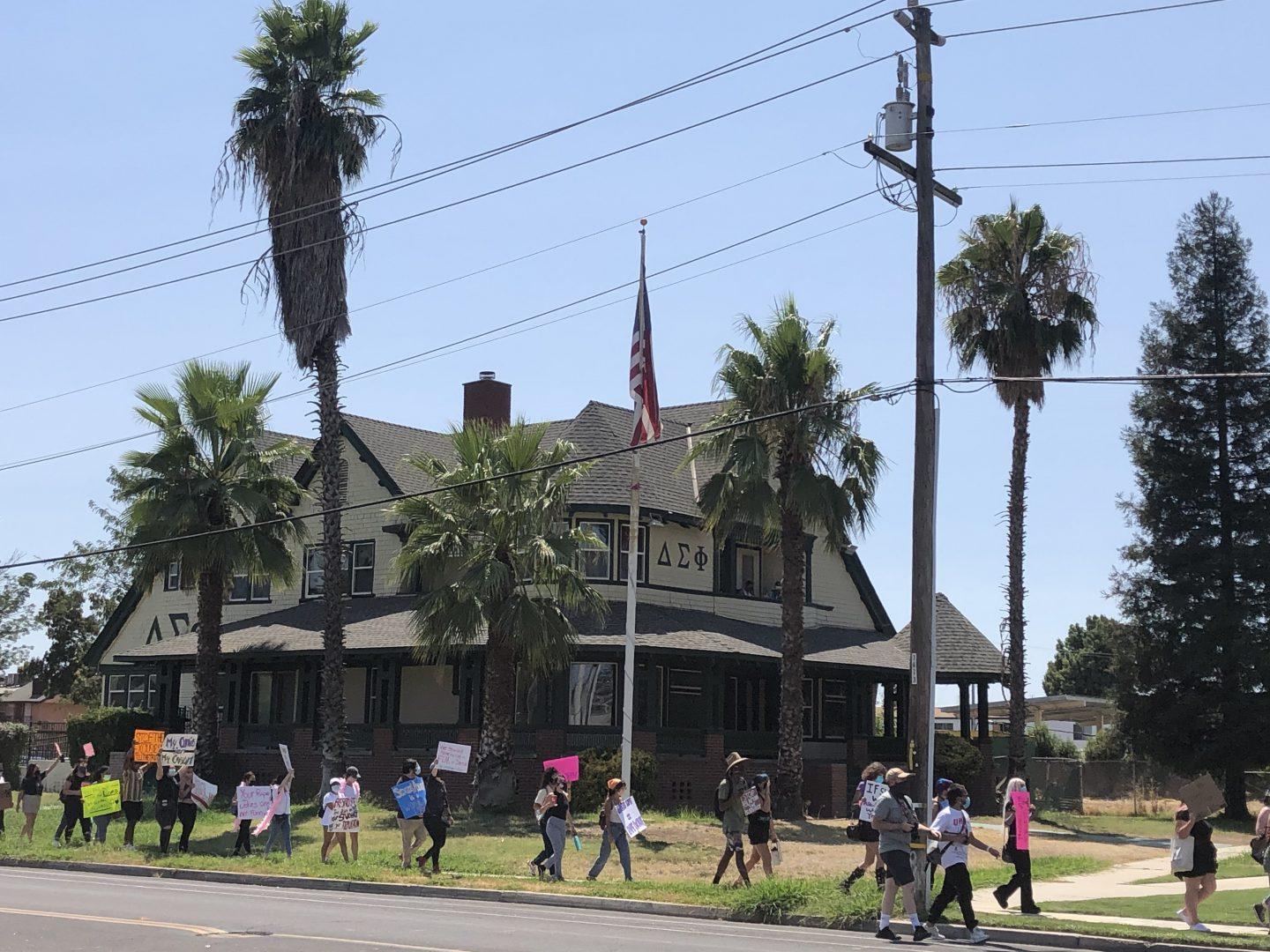Fresno State announced that its guidelines surrounding sexual harassment, sexual misconduct and discrimination will remain the same regardless of U.S. Department of Education’s (ED) new Title IX regulations, per a campus email on Aug. 19.
The ED, led by Secretary of Education Betsy DeVos, released new Title IX regulations that became effective on Aug. 14. However, Fresno State states that the ED allows colleges to follow their own guidelines. In this case, the university will follow the California State University (CSU) procedures.
Due to the new regulations and a California Appellate Court decision, CSU revised its “Policy and Procedures; Discrimination, Harassment, Retaliation, Sexual Misconduct, Dating and Domestic Violence and Stalking against Employees and Third Parties” guideline on Aug. 14 and added Addendum B: Federal Mandated Hearing Addendum.
The CSU also revised its Executive Orders 1096, 1097, 1098 and Addendum A: State Mandated Hearing Addendum after the federal regulations took effect.
Addendum B outlines the procedures that need to be followed based on federal regulations. This includes the addition of dating violence, stalking and domestic violence as unlawful discrimination on the basis of sex which will fall under the definition of “sexual harassment.”
Under article IX of Addendum B, the CSU establishes that neither the accused and the complainant will be required to be physically present in the same room. Rather, campuses will provide equipment for both parties to be able to hear and participate in the live hearing.
Every party involved in the case ””students, accused and victims”” will have a right to an adviser, written notice of allegations, a right to cross-examine and challenge evidence at the live hearing.
However, as established under article IX, parties won’t be allowed to ask questions to each other. Rather, each party will be provided with a hearing adviser.
Under federal regulations and under article XII of Addendum B, schools are forbidden from using Title IX as a way to deprive students and faculty of their First Amendment rights.
As established on article IV of Addendum B, either party has a right to appeal the dismissal of a formal complaint as long as it is filed within 10 working days.
DeVos’ new policies have been met with wide criticism by civil rights leaders since these procedures will require not only support for survivors but also to ensure that accused students and/or faculty members have a “fair and transparent process,” according to the official ED press release.
The Collegian reached out to Fresno State’s Title IX Director Jamie Pontius-Hogan for a Zoom interview regarding clarifications on the campus’s email.
Instead, a statement was released stating that “California State University policies and procedures have been revised and are in accordance with new federal regulations. However, the federal regulations are more narrow in scope in regard to what is considered to be a violation of Title IX,” the statement reads.
Whenever a complaint is filed with the Fresno State Title IX office, the office will follow federal regulations. If the complaint does not meet the federal regulation requirements, it will be “dismissed” and “may be referred to another CSU process” such as Executive Order 1096 and 1097, the statement reads.
Another reason why DeVos’ new regulations have been met with wide criticism is because the definition of sexual harassment is narrowed compared to the definition of sexual harassment stated in the CSU Executive Order 1096 and 1097.
Based on the federal regulations, sexual harassment is defined as “any unwelcome conduct that a reasonable person would find so severe, pervasive and objectively offensive that it denies a person equal educational access.”
According to the Fresno State statement, the CSU’s definition of sexual harassment “indicates that the conduct could be severe, persistent, or pervasive,” allowing colleges to pursue cases that would be otherwise dismissed under the federal regulations.
If a complaint does not fall into the federal definition of sexual harassment and it is dismissed, it can be evaluated under the broader CSU Executive Orders 1096 and 1097.
Additionally, the CSU also allows campuses to look into complaints of incidents that took place on and during an international program whereas the federal regulations state that Title IX “applies to persons in the United States with respect to education programs or activities that receive federal financial assistance.”
The new guidelines also establish that buildings owned or controlled by student organizations, such as fraternities and sororities houses, will have to comply with Title IX policies.

If a complaint involving a fraternity and/or sorority house was issued, Fresno State would have to follow the federal regulations as well.
Per the federal regulations, Title IX “holds schools accountable for failure to respond equitably and promptly to sexual misconduct incidents and ensures a more reliable adjudication process that is fair to all students,” DeVos’ statement reads.
Fresno State is not new to criticism regarding its Title IX procedures.
The Fresno State National Association for the Advancement of Colored People (NAACP) told the Collegian that the organization is currently working with two Fresno State students “who are dealing with the Title IX office, sexual harassment and assault that has gone unchecked,” said D’Aungillique Jackson, Fresno State NAACP president.
“Fresno State is firmly committed to responding to and addressing sexual harassment and sexual misconduct that affects the CSU community,” the campus email stated.
For a more in-depth list of the new federal regulations, please visit the U.S. Department of Education website.
Related resources for survivors:
Confidential survivor’s advocate (559.278.6796) in the Student Health and Counseling Center. The survivor’s advocate can assist and support affected students and also talk through options, including the campus Title IX process. As stated on our Confidential Advocacy Services website for our students, you are NOT alone. You are NEVER to blame. There is help available.
University’s Title IX office (559.278.5357).
Affected students also have the option of reporting the situation to Fresno State police at 559.278.8400 and/or local police.




